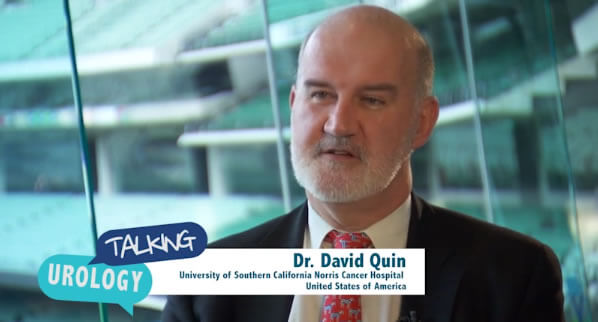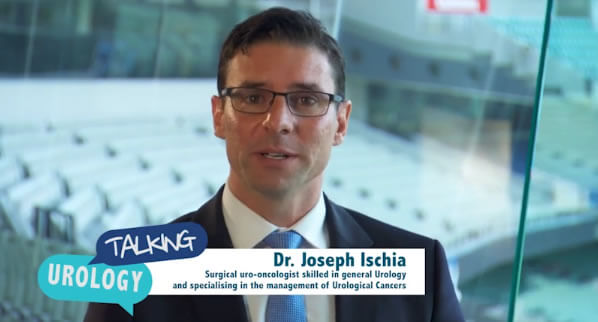ANZUP 2018 – A/Prof Laurence Albiges and Dr Monty Pal (2)
A/Prof Andrew Weickhardt discusses the CARMENA trial with A/Prof Laurence Albiges and Dr Monty Pal. Can we take away any positives from this negative trial?
Talking Urology Podcast Transcript
ANZUP 2018 Interviews – Laurence Albiges and Monty Pal (2)
Andrew Weickhardt: The CARMENA trial, Laurence. Let’s talk about the key points that we should take away from that trial that recently was reported at ASCO.
Laurence Albiges: So, CARMENA is a crucial trial for any doctor in the kidney cancer community. This trial challenge cytoreductive nephrectomy in patients that have metastatic disease upfront. This trial is a non-inferiority trial that demonstrate that Sunitinib alone is non-inferior to the combination of cytoreductive nephrectomy followed by Sunitinib which was this turn out of care until this ASCO 2018. The study demonstrates that Sunitinib alone, so single-agent TKI, is non-inferior to the sequence and therefore it does challenge one standard which was we have to perform surgery in those patients. Key message is that those patients with intermediate or poor-risk patient meaning upfront metastatic disease for which we want to start TKI for which there is a need because of metastatic spread. However, CARMENA enrolled patients that were non-symptomatic on the primary and I think this is important and that were eligible both for surgery and for systemic therapy and once again I know that for the poor-risk patient we already had the information that cytoreductive nephrectomy may not be the good way to go. This is being confirmed in CARMENA, although those patients in CARMENA were PS 0 or 1, so maybe eligible for such approach. Well, it is now established that surgery is not required anymore in those patients for which we want to start Sunitinib.
Andrew: So, Monty how about a patient I saw in clinic the other day who has got a few pulmonary nodules, a mediastinal enlarged node about 1 to 2 cm and a large 10 cm primary tumor, should I take the message of CARMENA back to this patient only with those three sites of disease and so there is no role for cytoreductive nephrectomy?
Monty Pal: Yes, sure. You know what, I wonder, in terms of, you know, gauging the patient for eligibility for CARMENA, I don’t know if you would quite fit the bill. This is a patient who I might still consider cytoreductive nephrectomy for, and quite frankly based on the disease profile that you described, maybe there is some rationale to simply wait on the systemic treatment for this patient.
Andrew: And Laurence, in terms of the patients enrolled into CARMENA, those patients, looking through the manuscript, I noted that only a very small proportion of them receive immunotherapy. In the current era, we have been talking about doublet immunotherapy upfront, what do you think about the role of keeping the kidney intact in terms of encouraging a response to immunotherapy? Is there any data that might suggest a role for that?
Laurence: That’s an important point. So, CARMENA was launched more than eight years ago. So, in the era where we did not have access to checkpoint inhibitors, CARMENA raised the question of the sequence or the optimal sequence. It is a strategy question and we believe that in a patient with high burden of metastatic disease, this is systemic therapy that is important in first line, and now standard of care is changing, we’ll use doublet IO, and so your question is right. But the strategy itself is we should start with systemic therapy and then in patient that have great response maybe discuss cytoreductive nephrectomy in great responders. So, yes, I will believe that what we will see in CARMENA will have to be transposed in the IO doublet era as well.
Andrew: Thank you so much for those insights.












